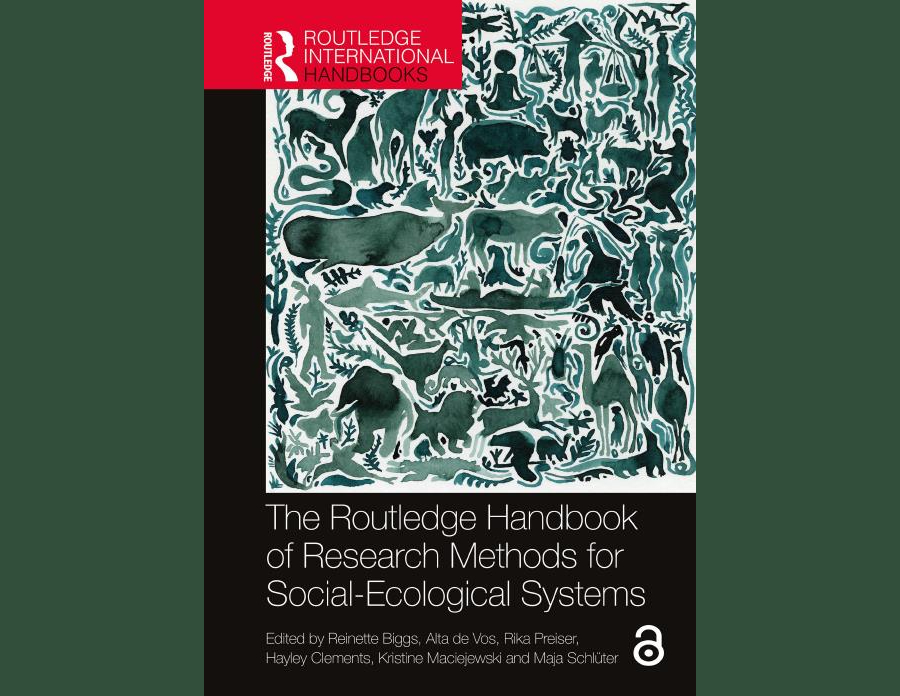
The first book to provide a guide and introduction specifically focused on methods for studying social-ecological systems, or SES, has been published. An Open Access colour version is freely available for download, and a hardcover black-and-white version is available for purchase.
The Routledge Handbook of Research Methods for Social-Ecological Systems is edited by the department’s Dr. Alta De Vos, along with Reinette (Oonsie) Biggs, Rika Preiser, Hayley Clements and Kristine Maciejewski of the Centre for Sustainability Transitions and Maja Schlüter (the Stockholm Resilience Centre, Stockholm University, Sweden). Contributions from 97 different authors, situated at SES research hubs in 16 countries around the world, bring a wealth of expertise and experience to this book. Several other DES staff, associates and alumni are counted among these authors, including Prof. Charlie Shackleton and Dr. Jessica Cockburn (DES staff), Dr. Joana Carlos Bezerra (DES alumni, now with Community Engagement), Prof. Sheona Shackleton (DES associate and ex-HoD), and Dr. Penny Mograbi and Amanda Manyani (DES alumni).
The book is primarily targeted at graduate students, lecturers and researchers working on SES, and has been written in a style that is accessible to readers entering the field from a variety of different disciplinary backgrounds. The book covers 28 broad groups of methods, including approaches to data generation, knowledge co-production, and analysis of SES. Each chapter discusses the types of SES questions to which the particular group of methods are suited,the potential resources and skills required for their implementation, and provides practical examples of the application of the methods.
In addition, the book contains a conceptual and practical introduction to SES research, including an overview of SES and SES research, its complexity-based philosophical foundations, and the practical design and conduct of SES research. The book concludes with a discussion of key gaps and frontiers in SES research methods, and includes a glossary of key terms in SES research.
“This book will be of interest to students and scholars of sustainability science, environmental management, global environmental change studies and environmental governance. The book will also be of interest to upper-level undergraduates and professionals working at the science–policy interface in the environmental arena,” said Prof Biggs.
“Working in social-ecological systems research is incredibly rewarding on account of its real-world application and impact, and wonderful diversity of methods. But this diversity of methods and approaches also pose challenges to new researchers first entering this space - it can be overwhelming and disorientating,” said Dr. De Vos. “This book was inspired by the challenges we see our students face as new SES researchers, and the ones we grappled with ourselves. We hope that this book will provide a useful tool to navigate to help orientate new researchers.”
The Routledge Handbook of Research Methods for Social-Ecological Systems will launch on 16 September 2021 at 16:00 South African time. Register for the event here:
https://maties.zoom.us/webinar/register/WN_IhLYZ79cQR6k1j8msE8m3A
